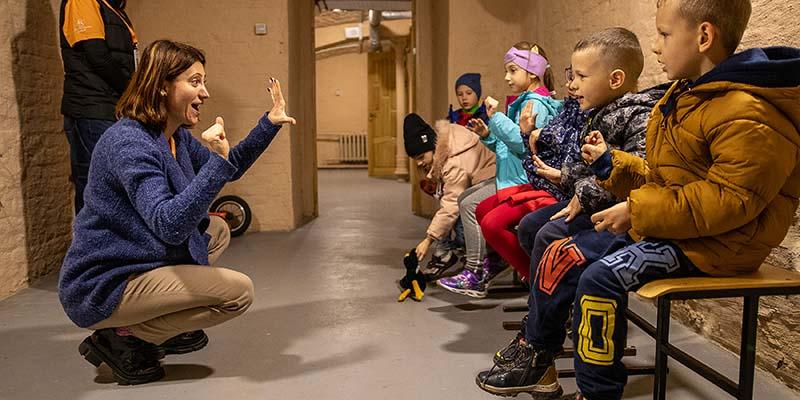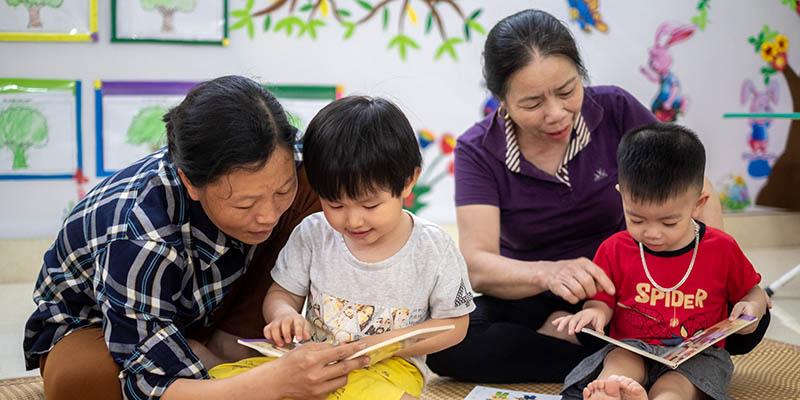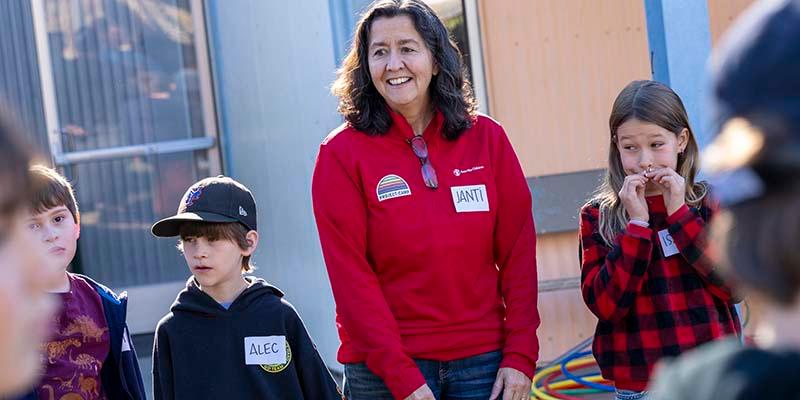Two Massive Earthquakes in Türkiye and Syria last February Killed Over 56,000
- Over 761,000 people displaced by the 2023 Türkiye (Turkey) and Syria earthquakes have yet to return home.
- Save the Children was among the first NGOs to provide clothing, water and food to affected children and families.
- One year on, we’ve been able to help nearly a million people on the road to recovery.
Save the Children is a charity you can trust. Read more about our nonprofit ratings and how we use your donation so you can give with confidence that you're helping children in times of crisis.

A powerful magnitude 7.8 earthquake struck Turkey and Syria on February 6

It was one of the strongest earthquakes to hit the region in 100 years

In northwest Syria, 4 million people were already in need of humanitarian aid
Our Response:
- In Turkey, our teams are working to prioritize child protection, mental health support, education, shelter and water.
- In Syria, we're supporting families with mental health support, education, livelihoods, nutrition, health and water while strengthening resilience to future shocks.
- In 2024, we aim to reach 269,000 people in Turkey and 889,850 people in Syria.
How to Help:
- Your donation to the Children's Emergency Fund enables us to respond to crises around the world, whether from conflict, climate change or natural disaster.
- Right now, children are missing out on the futures they deserve due to the effects of inequality and other issues such as the climate crisis, conflict and poverty. As a monthly donor, you can make a difference in their lives.
Advocate for children by joining our political advocacy arm — Save the Children Advocacy Network's — efforts to send a message to Congress. We must scale up essential lifesaving activities and provide Syrian children and families with the support to recover.
7 Questions About the Earthquakes in Turkey and Syria:
1. When and where did the first earthquakes strike?
2. When did the second earthquakes hit Türkiye's southern province of Hata?
3. Are earthquakes common in Turkey?
4. What impact did the earthquake have?
5. How have children's mental health been impacted by the earthquakes?
6. How have refugees and displaced people been impacted by the earthquakes?
7. How can I help survivors of the Turkey and Syria earthquakes

1. When and where did the first earthquake strike?
At 4:17 a.m. local time on Monday, February 6, a magnitude 7.8 earthquake hit Turkey and Syria, according to the United States Geological Survey. It was also felt in Cyprus, Egypt, Israel and Lebanon. Dozens of aftershocks, including a 7.5-magnitude earthquake struck Türkiye in the aftermath.
The earthquake’s epicentre was 26 km east of the city of Nurdagi in Turkey's Gaziantep province, at a depth of 17.9 km. The later Magnitude-7.5 event was around 4km south-east of Ekinözü in the Kahramanmaraş province. Syria's war-torn city of Aleppo is among those areas to have borne the brunt of a deadly earthquake.
The earthquake struck an area that is home to millions of refugees already battling desperate circumstances.
2. When did earthquakes hit Türkiye's southern province of Hata?
On February 20, earthquakes of 6.4 and 5.8 magnitudes shook the southern province of Hatay, an already devastated by earthquakes just weeks earlier.
Speaking from Hatay, Türkiye, Dan Stewart from Save the Children said: "There are heartbreaking reports of yet more collapsed buildings and power outages in a region where over 46,000 lives have already been lost and buildings destroyed. Children have been injured, lost loved ones, and many were already showing signs of acute distress. Hundreds of thousands of people have once again fled onto the streets in the bitter cold. Families who have already lost everything have just experienced another devasting blow.
3. Are earthquakes common in Turkey?
Turkey is an active earthquake zone. Experts note that most of Turkey sits on the Anatolian plate between two major faults, the North Anatolian Fault and East Anatolian Fault.
4. What impact did the earthquake have?
The two massive earthquakes and aftershocks that struck Türkiye and Syria last February killed over 56,000 people and displaced millions, with about 6.2 million children impacted.
In Türkiye, about 2.4 million people, including 660,000 children, were forced from their homes into temporary settlements living in tents and metal containers as narrow as parking a space. One year on, over 761,000 people, including 205,000 children, are yet to return home.
5. How have children's mental health been impacted by the earthquakes?
One in three children who lost their homes in the Türkiye earthquakes a year ago are still living in temporary shelters, while children in both Türkiye and Syria have struggled with anxiety and other mental health issues since the disaster.
While in Syria, children who survived the earthquake have faced an economic crisis and an escalation in conflict, further damaging schools and health centers.
Children are also struggling to process and cope with everything they have endured. In the aftermath of the earthquakes, 85% of children with disabilities that spoke to Save the Children’s partners in Syria reported difficulties interacting with their families, friends, teachers and others because of their experiences during the earthquakes.
6. How have refugees and displaced people been impacted by the earthquakes?
Turkey hosts more than 3.5 million Syrian refugees who have fled their country's civil war, almost half of them children. The affected area in Turkey is also close to the Syrian border, where more than 6.8 million people were internally displaced in Syria before the earthquake.
Save the Children is concerned about the many already vulnerable Syrian refugees living in overcrowded and unstable accommodation in Turkey. The affected area in Syria is home to many vulnerable displaced people.
According to UNHCR, the exact number of refugees impacted is not yet know and might not be for some days. It is feared the number of refugees impacted might be significant.
7. How can I help survivors of the Turkey and Syria earthquakes?
Your donation to the Children's Emergency Fund enables us to respond to crises around the world, whether from conflict, climate change or natural disasters.




